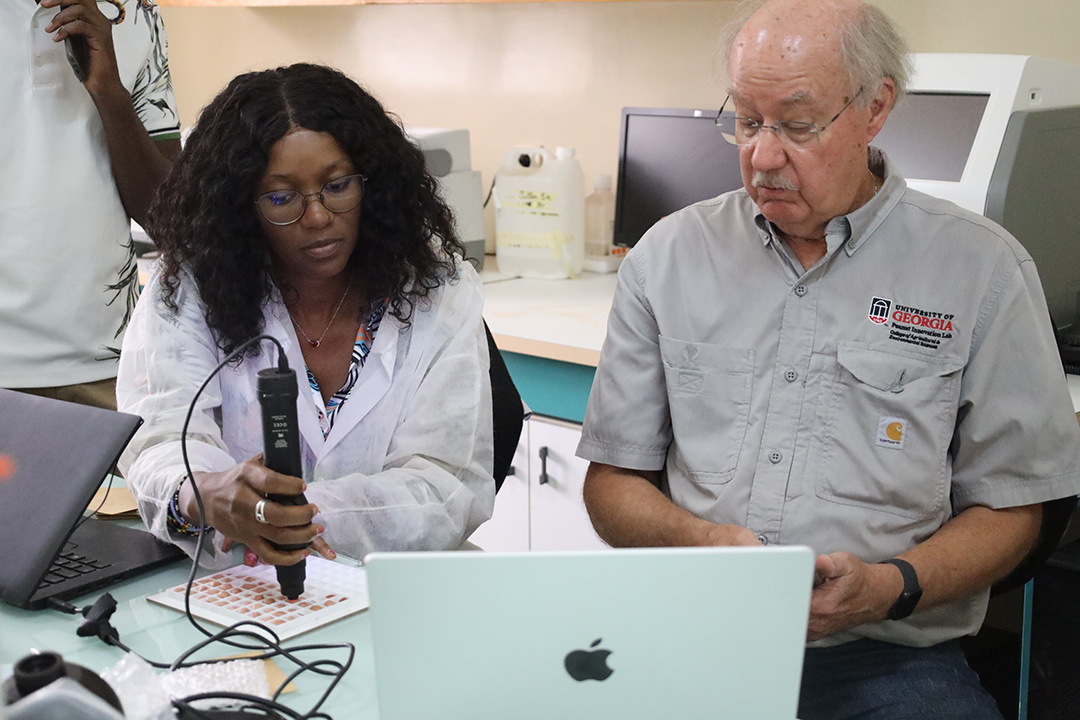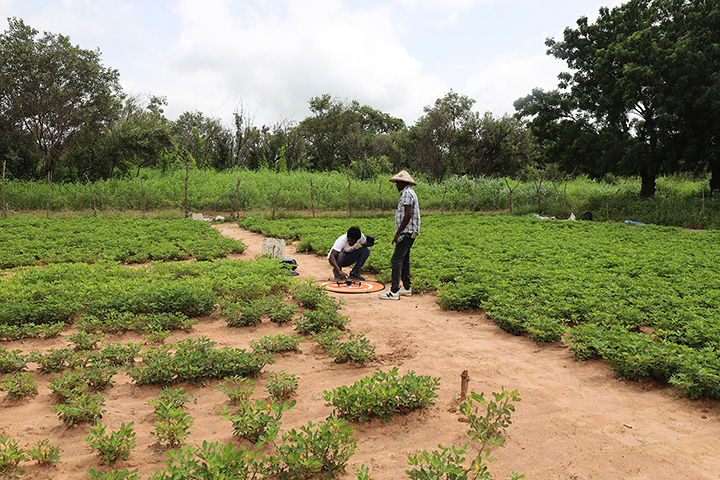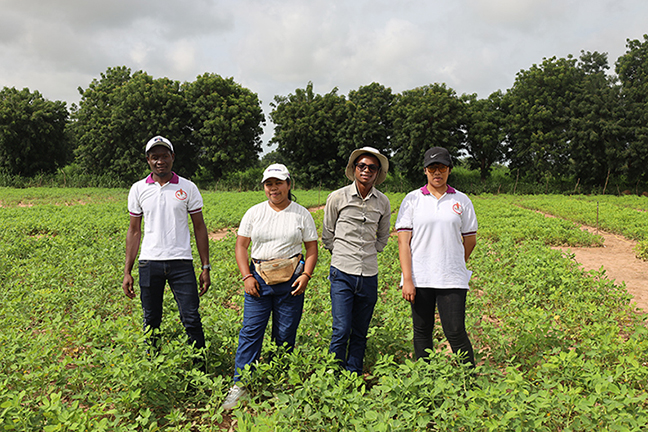U.S. college students interested in a future in international development could only ponder the possibilities from afar this summer, as the ongoing global pandemic kept most from any sort of study or work abroad. That limitation applied to students participating in a National Science Foundation Research Experiences for Undergrads program at the University of Vermont, too, a program designed to prepare them for graduate school or professional work in international development, applied economics, sociology, demography or public policy.
When students applied, they hoped to travel to Uganda and conduct research there, but a partnership between the University of Vermont and a Peanut Innovation Lab project at the University of Tennessee gave a group of students a way to plug into work in Uganda even when they couldn’t travel.
While participants dove into learning about sustainable agriculture closer to home in Vermont, faculty at the University of Vermont reached out to the University of Tennessee to find out whether students might be valuable to the “Photovoice for youth empowerment in peanut value chains in Uganda” project that is part of the Feed the Future Innovation Lab for Peanut at the University of Georgia.
“We met a few times to discuss and realized it could be a win-win. They were looking for opportunities for students to do some work that can be applied to an ongoing project, and we happen to have an on-going project in Uganda,” said David Ader, the assistant director of the Smith Center for International Sustainable Agriculture at the University of Tennessee’s Institute of Agriculture. https://smithcenter.tennessee.edu
The photovoice project uses photos taken by young people in Uganda to chronicle their experiences in and perceptions of the peanut value chain, in order to understand better the roles they play in that value chain and what barriers stand in the way of their success in agriculture.
Part of the Vermont students’ training this summer involves hands on work with GIS and data analysis. The program in Vermont already had identified the World Bank’s Living Standards Measurement Study as a valuable resource for the students to analyze and show a statistical picture about the lives of Ugandan youth. The Vermont students work will create maps of youth in agriculture and specifically peanut production, contributing quantitative data to the qualitative results from the photovoice work.
“We hope their work contributes to our understanding of the larger context of youth in agriculture and peanut production,” Ader said. “We think that they will be able to shed light on the larger agricultural system and how peanut production relates to other socio-economic variables. We anticipate that our combined work can help point out the needs/challenges of youth farmers.”
While the pandemic limited travel, the creative solution and partnership between NSF- and USAID-funded projects created an opportunity for U.S. students to engage in and support a research for development project. The undergraduate researchers hope to publish their work, as well, Ader said.



